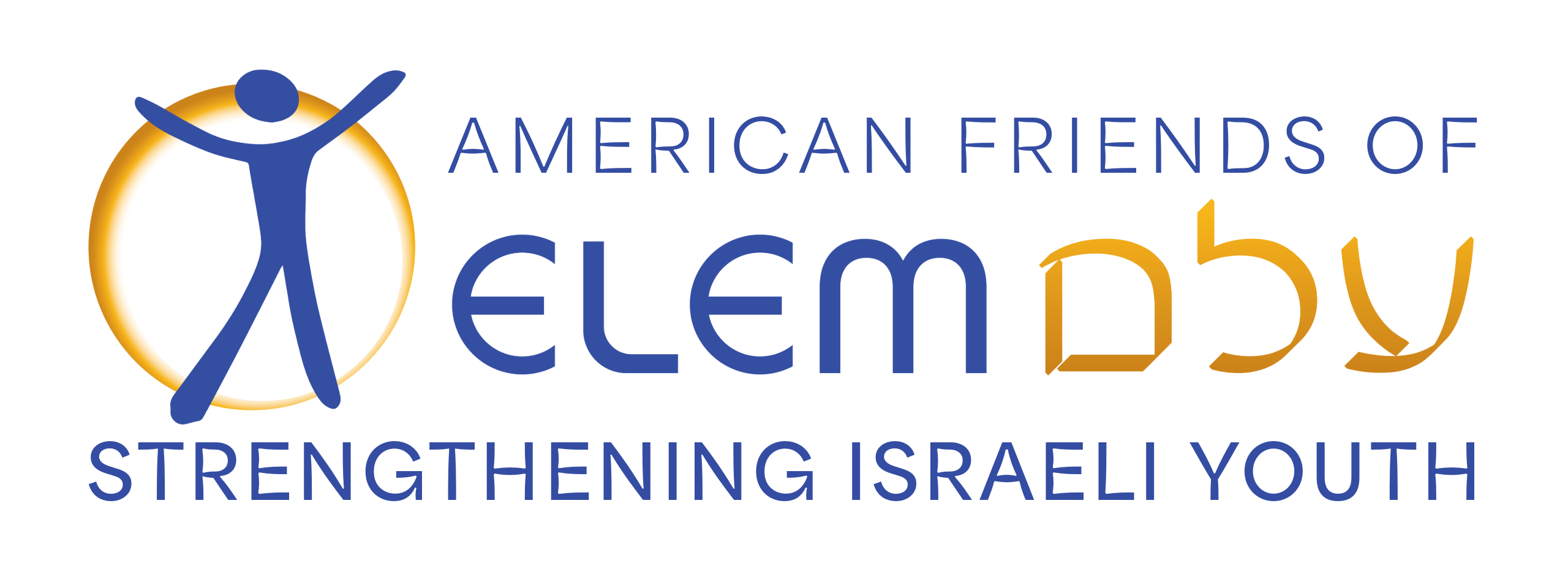Maya Fish Baron, Director of the Extreme Risk & Trauma Field at ELEM, was interviewed on i24 about the traumas, challenges, and hope for rehabilitation facing the returning hostages.
It’s an unprecedented hostage situation, Baron explains, and the professional care teams are learning as they go, combining existing scholarship, best practices in trauma-informed care, and often—feedback from the returning hostages themselves.
Watch the video below:
TRANSCRIPT
i24: Agam Berger, Arbel Yehud, and Gadi Moses have returned from captivity, but their healing is just beginning. Joining us is social worker Maya Fish Baron, Director of the Extreme Risk Field at ELEM. Welcome.
Maya Fish Baron: Hello
i24: Hi, Maya. Can you tell us a little about the process they will be going through?
MFB: Look, I think we are at a place where there is so much we don’t know. These are protocols that are being created and learned in the moment, because there is not much scholarship to draw on. A case like this, of civilians being pulled out of their beds, held for such a long time, not to mention the fact that there were young children kidnapped from their homes, so these protocols are really the first being written in the world, on receiving children who return from captivity. I think we are going to see many different responses. We also must remember that they experienced very different conditions and situations. We hear that Arbel Yahud, for example, from what we know now, was isolated the entire time. This is a significant parameter to consider in the road to healing.
i24: We all saw her pictures, surrounded by a mob. Even just seeing so many people, after you’ve been alone for so long, it must be extremely traumatizing. We don’t know what she endured for 482 days, but even just the glimpse we saw today, it is frightening.
MFB: It is traumatizing to see people, and of course to see people like that, in a situation like that. And we also learn from the testimonies of released hostages, that this is one of the most scarring experiences, being surrounded by a mob like that, feeling that something horrible could happen to me at any moment, and I have no idea what is going to happen to me. When I go to sleep, when I am brought outside, when I’m taken between places, I have no control over anything in my life. And if you saw some of the hospital protocols being published, or the professionals explaining them,this is one of the basic, most fundamental things that the care teams will do from the second that the hostages step foot in Israel, is to give them a choice: What would I like to drink? Do I want a shower? A haircut?
i24: Now I think I understand the reason they get to choose if they want to take a helicopter to the hospital, or a car. They decide if they want the initial medical examination first, or if they want to call their friends and family first. This is a very interesting point.
MFB: This is one of the basic principles of trauma care. In traumatic experiences, one of the most significant elements is having the control over your life, the freedom of choices, stripped away, whether it’s for several minutes, for days, for months, or even for years. And a basic part of the treatment of trauma is handing control back to the person. This is one of the hardest things someone can go through, having no control over your life, on the most basic, daily, level, with the simplest everyday actions. And we try to give that back in a way that is caring, warm, loving, and accepting, but really in very, very small steps.
i24: We are seeing the images, and we’re amazed at how strong they are. They survived terrible conditions—we don’t even know the full extent yet. We know how difficult it was, and with the ongoing uncertainty about absolutely everything: How will this end? Will this end? Will we ever see our loved ones again? So how can we even begin rehabilitating someone who survived this kind of deep emotional distress? Because we can see they’re walking on their own two feet, but the emotional pain is something we cannot see.
MFB: Absolutely. We as a society often talk in slogans or with posters, and I hear people in the media saying “See, they look good.” We have no idea what their situation is. Walking on their own two feet is important of course, but what is happening inside? We have no idea. And we understand that at the end of the day, they are headed into a long journey of healing. People often say “to get over” something, or “when will they heal?” This is something that is going to be with them for the rest of their lives. The question is how to live alongside it. How to keep living with what they went through.There are people that survived some truly horrific things, and we here in Israel know. We had so many Holocaust survivors here, people who lived through wars, who survived hell. There are people who, out of the most horrifying experiences, managed to grow, to create a story, a narrative for the world, and so much meaning, while living with severe, extreme trauma, and learning every day to live with it. And like I said, these are things that have to do with the conditions they were held in, if they were alone or together, and how we receive them now. These are some of the factors that are going to affect the rest of their lives.
i24: And of course, Maya, this care is unprecedented. There’s no body of knowledge on how to treat people who returned from this kind of captivity, after so long, snatched from their beds, taken away in pajamas. I assume the professional teams are learning as they go.
MFB: Learning, yes, but of course there are some things where we have precedent to draw on, especially on captivity, but that is mostly cases of soldiers, but this was essentially a different type of event, a very different kind of situation.There is a lot of theory on complex PTSD, trauma that occurs over a long period of time, as opposed to trauma tied to one moment,but there is definitely a lot of learning on the go here. Even the hospitals reported that they drew new conclusions from the experiences and feedback of the hostages who returned in the first deal. A lot of trial and error, and recalculating as they work.
I24: We wish them Refua Shlema [a full healing], a full recovery of body and soul. There is an entire country behind them, supporting them. Maya Fish Baron, thank you for being here with us.
MFB: Thank you.
I: You saw her pictures, surrounded by a mob, and in general, seeing so many people after you’ve been alone for so long, it must be awfully traumatizing. We don’t know what she endured for 482 days, but even this glimpse today is frightening.
M: It is traumatizing to see people, and of course to see people like that, in a situation like that. And we also learn from the testimonies of released hostages, that this is one of the most scarring experiences, being surrounded by a mob like that, feeling that something horrible could happen to me at any moment. I don’t know what is going to erupt. Even when I go to sleep, even when I am taken outside, being taken between places, I have no control over anything in my life. And if you saw some of the hospital protocols published, or the professionals explaining them, this is one of the rudimentary things that caretakers are going to be doing from the second the hostages step foot in Israel. The choice: what would I like to drink? Do I want a shower? a haircut?
I: We are hearing these reports, it’s very interesting, and now I think I understand the reason: they will pick if they want to take the helicopter to the hospital, or if they want a car, they decide if they want the initial medical examination first, or of they want to call their friends and family first. This is a very interesting point.
M: This is one of the basic principles of trauma care. One of the most significant elements of trauma is having control over your life, the freedom of choices, stripped away. Sometimes it’s for several minutes, sometimes it’s for days, or, for months and years. And a basic part of the treatment of trauma is handing control back to the person. This is one of the hardest things someone can go through, having no control over your life, on the most basic, daily, level, on the simplest everyday actions. And we try to give that back in a caring, warm, loving, accepting way, but really, in small steps.
I: We are seeing the images, and we’re exalted to see how strong they are, how they survived terrible conditions, that we don’t even know yet, but we know they were so difficult, a longstanding uncertainty about absolutely everything. Where will this end, when? Will we ever see our loved ones? How can we even begin rehabilitating someone after such an emotional struggle? Because we see they are walking, but the emotional pain is something we cannot see.
M: Totally. Often, we as a society talk in slogans and posters. I hear people in the media saying “see, they look good.” We have no idea what their situation is. Walking on their own two feet is important of course, but what is happening inside? We have no idea. And we understand that at the end of the day, they are headed into a long journey of healing. And people often say “to get over” something, or “when will they heal”. This is something that is going to be with them for the rest of their lives. The question is how to live alongside it. How to keep living with what they went through. There are people that survived some truly horrific things, tand we here in Israel know – we had so many Holocaust survivors here, people who lived through wars,hey survived Hell. Some people managed to grow out of the most horrifying experiences, to create a story, a narrative for the world, and so much meaning, while living with a very severe trauma, struggling with it every day. And like I said, there are things that have to do with the conditions they were in, were they alone or together, and how we receive them now. These are some of the parameters that are going to affect the rest of their lives.
I: And of course, Maya, this care is unprecedented in the world, there’s no body of knowledge on how to treat people who returned from cruel captivity like that, after so long, snatched from their beds, taken away in pajamas, I assume the professional teams are learning on the go.
M: Learning, yes, there are of course certain things where we have precedent to draw on, even captivity, but that is mostly cases of soldiers, this was essentially a different type of event. There is a lot of theory on complex PTSD, trauma that occurs over a long period of time, not restricted to a single event, but there is definitely a lot of learning on the go here, and even the hospitals reported that they drew new conclusions from the feedback of the hostages returned in the first deal. A lot of trial and error and recalculating as they work.
I: We will of course, wish them Refua Shlema, a full recovery, of body and soul, there is an entire country behind them, supporting them. Maya Fish Baron, thank you for being here with us.
Maya: Thank you



